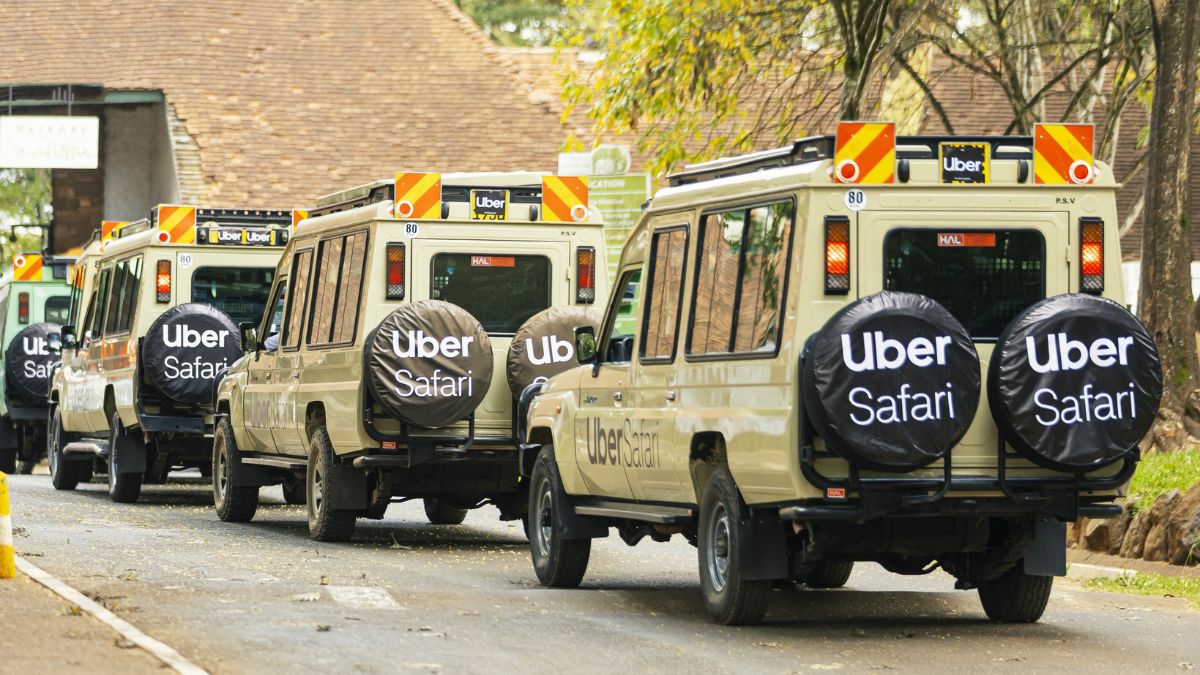Uber has launched safari services in Kenya’s Nairobi National Park. The ride-hailing app will offer three-hour guided tours with an option of booking day and night safaris. The service aims to boost Kenya’s tourism and marks Uber’s 10 years in the East African nation
Booking a safari at Kenya’s national parks has often meant months of advance planning and frustratingly long waits. But now, wildlife lovers have a reason to celebrate — Uber has rolled out a new service that makes the experience much simpler.
Through Uber Safari, visitors can hop on guided game drives inside the Nairobi National Park, home to majestic lions, leopards, buffaloes, rhinos, and more. With just a few taps on the app, riders can pre-book a day or night adventure and set off on a three-hour guided tour of the park’s rich wildlife.
“This is not just another Uber ride. Nairobi is one of the only cities in the world that has a fully-fledged national park within the city limits. That is what makes it unique, and we saw an opportunity to tap into that,” said Imran Manji, Uber’s Head of East Africa, reported The Nairobi Law Monthly.
So how exactly does it work? And how has Uber managed to expand its business footprint into African nations? Here’s what we know.
Also read: 10 Animals you will spot in Kenya’s Masai Mara National Reserve
All about Uber’s Safari service in Kenya
Uber’s new safari option is designed to take the stress out of planning a wildlife trip. The service includes pick-up and drop-off from your preferred location. To deliver this, Uber has partnered with licensed tour operators who curate tailored safari experiences.
Travellers can choose between two packages. A day safari, priced at KSh 25,000 (around Rs 17,043), allows up to seven guests, while a night safari costs KSh 40,000 (around Rs 27,177) and is limited to a group of five.
Bookings must be made in advance, at least two days before for daytime trips, and five days ahead for night outings. Wildlife enthusiasts can even plan their journeys up to three months in advance.
Editor’s Picks
“What we’ve done is merge the simplicity and accessibility people associate with Uber with the magic of the safari experience. The Nairobi National Park and our technology are what inspired this idea,” said Manji, quoted in media reports.
Payments are processed directly through the Uber app. However, entry tickets to the park still need to be purchased separately from the Kenya Wildlife Service (KWS).
Also read: How climate change is impacting wildlife in Africa’s Serengeti and Maasai Mara
The launch of Uber Safari comes as the company marks ten years in Kenya. With tourism generating $4.3 billion annually for the country, Uber is now targeting not just domestic travellers but also business visitors who may want a quick safari during their short stays in Nairobi.
Tourism is one of Kenya’s biggest industries, accounting for 10.4 per cent of GDP and 5.5 per cent of formal employment, according to government figures. Uber itself reported that in 2023, its platform contributed 14.1 billion shillings ($109 million) to the Kenyan economy, with around a fifth of that coming from the tourism sector.
The Tourism Research Institute noted a clear impact: in the first half of 2025, visitor numbers jumped by 24 per cent compared to the previous year, with Nairobi National Park ranking among the top destinations.
The new safari service is being rolled out in collaboration with the Ministry of Tourism, Kenya Wildlife Service, Tourism Regulatory Authority, and trusted local fleet partners, reported CIO Africa.
The idea, Uber says, is to offer travellers a seamless, safe, and memorable adventure while boosting Kenya’s tourism economy.
With input from agencies
End of Article

)

